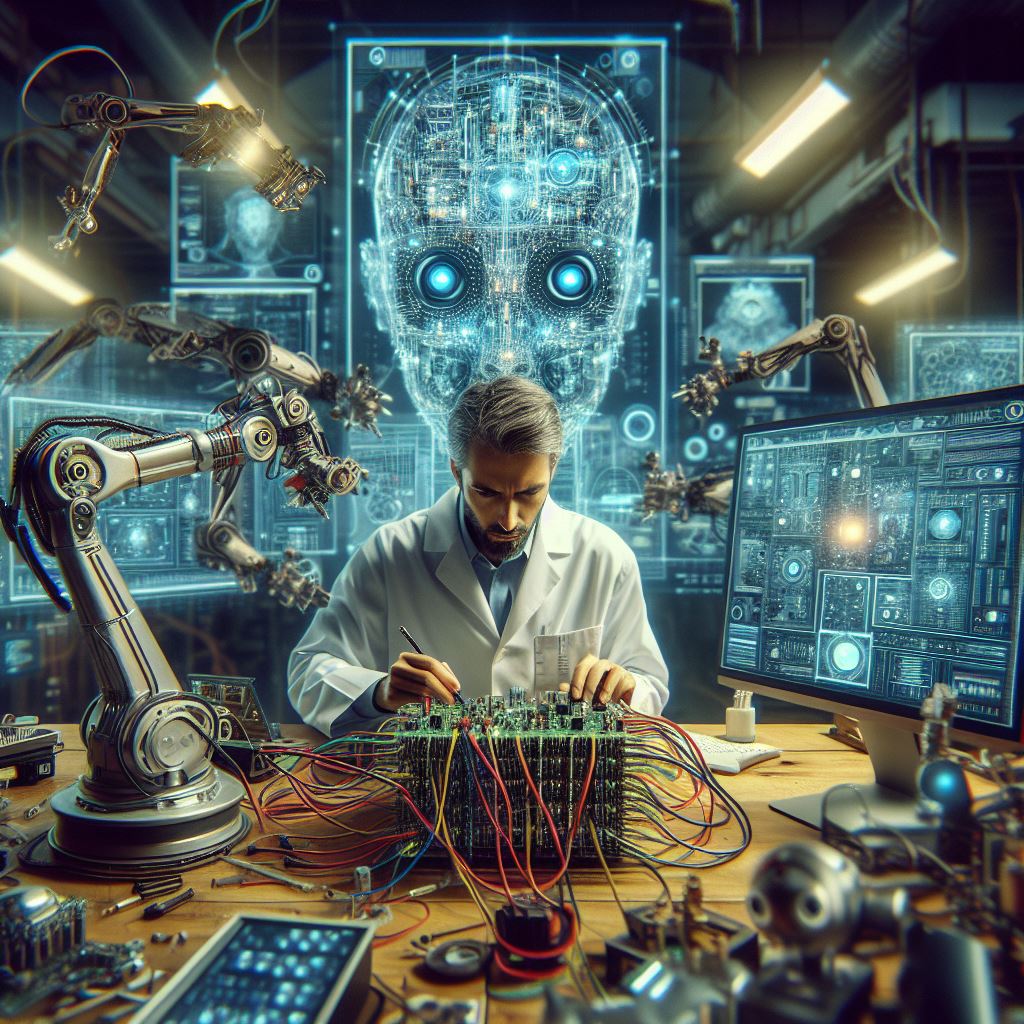In the realm of AI Robotics Engineering, our focus lies in harnessing the power of artificial intelligence to create robots that think, learn, and act autonomously. Combining cutting-edge AI algorithms with advanced robotics, our research and development efforts strive to bring the next generation of intelligent automation to various industries. Our work in AI Robotics Engineering is centered on three core areas:
1. Autonomous Navigation and Control Systems
Our autonomous navigation systems empower robots to interpret and interact with their environments independently. Through advanced sensors, mapping algorithms, and machine learning, we design robots capable of navigating complex spaces, adapting to obstacles, and operating safely alongside humans. These systems are pivotal for applications like autonomous vehicles, drones, and industrial robots in logistics and manufacturing, where real-time adaptability and decision-making are essential.
2. Machine Learning for Robotic Adaptation
We develop machine learning models that allow robots to learn from experience, adapt to new tasks, and improve over time. Through reinforcement learning, our robots can understand and refine their actions in response to feedback from their environment. This adaptability enhances efficiency in dynamic settings such as warehousing, medical environments, and agriculture, where robots must handle variable conditions and tasks.
3. Human-Robot Interaction (HRI)
Our research in Human-Robot Interaction (HRI) aims to create robots that understand and respond to human intentions, expressions, and gestures. By using natural language processing (NLP) and emotional AI, we develop intuitive and responsive systems that enable seamless collaboration between humans and robots. This approach is essential in healthcare, customer service, and educational environments, where robots must provide meaningful support and interaction with people.
4. Robotics for Precision Tasks and Complex Operations
AI robotics can bring unprecedented precision to tasks in sectors like healthcare, where accuracy is critical. Our robots are engineered with deep learning and vision systems to execute delicate procedures, from surgical assistance to pharmaceutical automation. These technologies improve efficiency and reduce error rates in complex, high-stakes environments.
5. Ethics and Safety in AI Robotics
We prioritize safety and ethical considerations in all our AI robotics projects. Our team designs robust control systems and applies strict safety standards, ensuring that robots operate within safe boundaries and are accountable in critical scenarios. Through ongoing ethical assessments, we ensure our AI robotics solutions align with societal values, promoting responsible and safe deployment in human-centric applications.
Our Vision for AI Robotics Engineering
Our mission in AI Robotics Engineering is to pioneer intelligent, adaptive, and safe robotic solutions that elevate human capabilities and enable new possibilities across industries. By merging AI with robotics, we aim to develop a generation of robots that enhance productivity, improve safety, and seamlessly integrate into the modern world, making a lasting positive impact on society.

